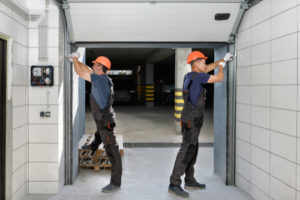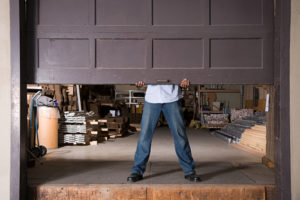It’s an understatement to say that garage door problems are an inconvenience. Unfortunately, as garage door openers are complex mechanisms, it is not uncommon for issues to occur if the door hasn’t been properly maintained.
If you are experiencing problems, you should be aware of some basic garage door troubleshooting tips that can help you determine the issue and see if you need to hire experts for garage door repair in San Diego.
Whether you’re worried that your garage door sensors aren’t properly aligned or just want to make sure your door operates smoothly, keep reading to learn how to test your garage door and diagnose some of the most common problems.
How do you diagnose a garage door problem?
Luckily, many issues with your garage door can be easily fixed if you’re familiar with the proper procedures, although you should not attempt to fix your garage door by yourself if you aren’t sure what the exact problem is, in which case hiring professionals is always the best way to handle garage door issues.
Here’s what you should do if you have any of these frequently encountered garage door issues.
Your garage door won’t close completely
If you try to close your garage door and it doesn’t go all the way to the ground, you should perform the following checks:
- Are the rollers damaged? Inspect your garage door rollers and look for signs of damage or rust. If they are rusty, you can try lubricating them using silicone lubricant. If they are damaged, you may need to have them replaced.
- Are the sensors blocked? Your door has sensors on both sides of the track. In order to operate smoothly, these sensors need to have a clear sightline. Make sure there is no debris. If that doesn’t fix the problem, you may have to have the sensors realigned or replaced.
- Is your close limit switch set correctly? For safety reasons, your door has a limit switch that tells it when it needs to stop moving. Improper settings may cause your door to behave erratically, so make sure to check and adjust the switch correctly.
Your garage door won’t open completely
If you can’t get your garage door to open all the way although you have no difficulty closing it, you should also check if the rollers are damaged or rusty and inspect the limit switch for opening the door. If this switch is set too far away from the motor, it may stop the door from opening completely. If that’s the case, you will have to adjust the switch and have it replaced if that doesn’t resolve the problem.
Why does my garage door stop and go back up?
There are two scenarios in which your garage door may start to reverse:
It reverses before hitting the ground
Check the setting of your closing force switch. If the settings are incorrect, your door will think that it has hit the floor and reverse if it detects the slightest bit of friction. You should also check the rollers as damage or rust may also be the culprit.
It closes all the way and then starts to reverse
If your door hits the floor and then starts to go back up, your close limit switch may be set incorrectly. Try adjusting the close limit switch screw slightly until your door stops when it reaches the floor.

Hire convenient and reliable garage door repair in San Diego
If you’re experiencing problems with your garage door opener system, look no further than Dlouhy Garage Doors. Our team of skilled and experienced technicians will inspect your door thoroughly and perform any necessary repairs and adjustments to ensure optimal performance. You can count on us for your garage door repair and installation needs no matter where you live in the County of San Diego. Give us a call!
